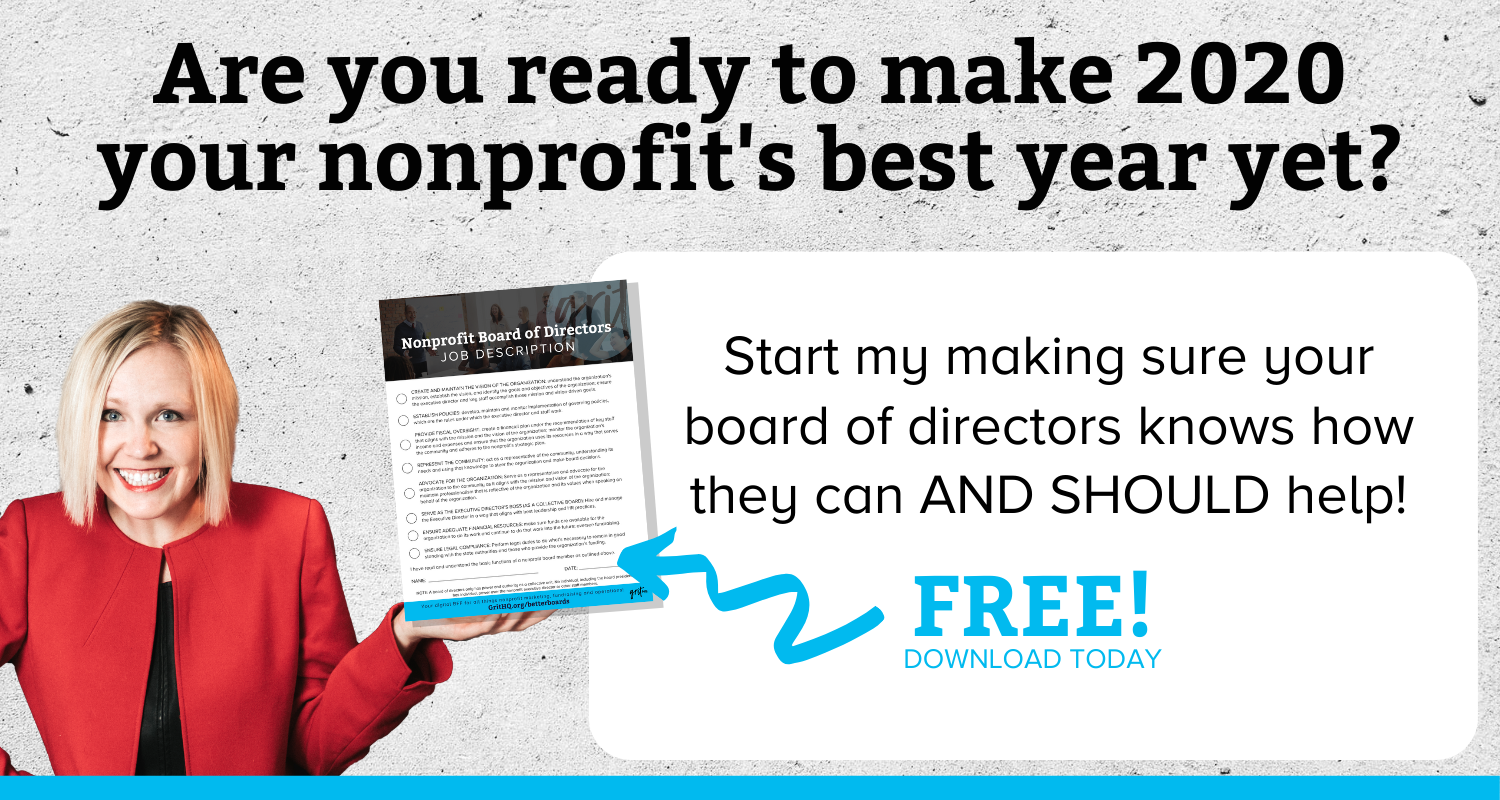What does a good Board of Directors do?
What does a board of directors do?
1. Represent the community. The organization exists to serve the community – it’s important for the leaders of the organization (the Board) to know what the community needs and wants.
2. Advocate for the Organization to the community. The community must understand the services available to help them, and they must understand the organization before they will give money and other resources to the organization.
3. Manage the Executive Director. The Board is the Executive Director’s boss, and must do everything a good boss does to select the right person and oversee his or her work.
4. Create the vision of the organization. The leaders of the organization (the Board) must identify the goals and objectives of the organization, and make sure the Executive Director and staff accomplish those.
5. Develop, maintain and monitor implementation of policies. The leaders of the organization (the Board) must establish the rules under which the organization operates. The Executive Director and staff then do their work within that framework.
6. Provide fiscal oversight. The community provides resources to the organization – the Board is responsible to the community to ensure that the organization uses its resources well.
7. Ensure adequate financial resources. The Board must make sure the funds are available for the organization to do its work, and continue to do that work into the future. The Board oversees fundraising activities and monitors the organization’s income and expenses.
8. Perform legal duties. Social service organizations are corporations under state law, and must do what’s necessary to remain in good standing with the state authorities and those who provide the organization’s funding.
What must board members do?
1. See the big picture. Keep the organization’s mission and purpose in the forefront when discussing issues and opportunities. As the organization’s leaders, Directors must develop and monitor the vision and goals, while the Executive Director and staff focus on the details of the organization’s work.
2. Possess and develop the skills and expertise needed for oversight. Understand the areas of knowledge that make up a director’s role, and seek information and educational opportunities to become a better director.
3. Be actively involved. Attend and actively participate in meetings and events.
4. Constructively debate. Provide his or her individual perspective, while also respecting the perspectives others put forth. Strive to reconcile differing positions effectively to arrive at a consensus.
5. Create the future, more than review the past. Although monitoring of past performance is important, Directors must think about and talk about the future to be sure the organization continues to succeed.
6. Not micromanage. Directors should work on setting goals and monitoring performance. The Executive Director is charged with determining how best to achieve the desired results. “Keep your nose in and your fingers out.”
7. Maintain confidentiality. Recognize that Board discussions often extend into areas with sensitive information and confidential issues, which are not to be revealed outside of the board discussions.
8. Avoid conflicts of interest. All participation and decisions should be for the benefit of the organization and the community, without regard for personal gain or furthering your own agenda.












